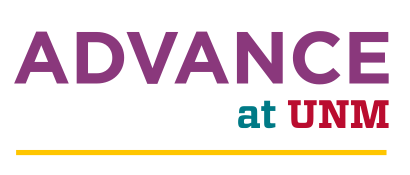
UNM psychology professor examines brain stimulation and mindfulness therapy to reduce heavy drinking
Key info:
Dr. Witkiewitz’ project focused on integrating a non-invasive form of brain stimulation, called transcranial direct current stimulation, along with mindfulness meditation as a treatment for individuals who want to reduce heavy drinking. The study also examined neurobiological mechanisms of change following the combined brain stimulation and mindfulness meditation treatment.
Quote:
“The Women In STEM Award provided really necessary equipment for my research. Without the award, I wouldn’t have been able to use the best technology and equipment to do the research. It really elevated my ability to do high quality and cutting edge research in my area,” Witkiewitz said.

Dr. Katie Witkiewitz
Regent’s Professor, Psychology
Editor’s note: This Women in STEM Award winner profile is part of a series of stories that explores what recipients have been working on since the awards began in 2016.
Dr. Katie Witkiewitz, a regent’s professor in the UNM Department of Psychology won a 2016 Women in STEM Award for her proposal “Mindfulness-Based Relapse Prevention and Transcranial Direct Current Brain Stimulation to Reduce Heavy Drinking.”
Through the award, Witkiewitz and her team integrated transcranial direct current stimulation, a non-invasive form of brain stimulation, combined with mindfulness meditation to see if this could be a viable treatment for individuals who want to reduce heavy drinking.
To put their hypothesis to the test, Witkiewitz obtained 10 non-invasive brain stimulation machines using the award money. While the results were a bit mixed and didn’t quite line up with her hypothesis, Witkiewitz said they were successful in conducting the research and finding results.
“We were using brain stimulation to try and help people reduce their drinking and it was paired with a mindfulness intervention. The mindfulness intervention was very effective, though the brain stimulation did not add anything to the intervention,” Witkiewitz said. “We thought brain stimulation might give a boost to the mindfulness training, but it turned out the mindfulness training was very effective and the brain stimulation didn’t actually give that boost we anticipated.”
While they were able to find promising results, Witkiewitz said the team navigated its fair share of problems along the way.
“I think the biggest challenge was with the equipment. The technology we were using was really new and that was great in that it was cutting-edge technology, but also some of the equipment didn’t work all the time because it was so new,” Witkiewitz said. “We were almost like initial testers of that equipment and so we had a lot of sending equipment back and forth between us and the manufacturer so that was a challenge.”
Witkiewitz said she learned that the downside of being on the cutting-edge side of technology is that it’s not as tried and tested, but it helped to further affirm her results.
“I don’t have to question whether we didn’t find results because we were using old technology. We didn’t find results using the best technology out there so I think that was one of the bigger takeaways,” Witkiewitz said.
Along with the award, Witkiewitz said it was very uplifting to be acknowledged for the research through publicity from Advance.
“Stories can be really helpful with recruitment and it was very helpful to have the support of the institution and Advance to know our work was meaningful and valued. Promotion outside my department was great,” Witkiewitz said.
“It was really my first study I developed, designed, and completely managed from start to finish independently so that was really rewarding,” Witkiewitz said of her award-winning project.
Along with this, Witkiewitz said it was rewarding to have worked with a wonderful set of graduate and undergraduate students on the project as well as an honors thesis student who used that data for her honors thesis.
“It was really fun for us to work together and collaborate on the project and we were all women so it was really fun and rewarding to have a group of women who were working together to conduct the research and that we were all focused and committed to help people improve their lives and health,” Witkiewitz said.
Five years later, Witkiewitz is taking her work on substance use disorders to new heights. She is currently the editor of the journal Psychology of Addictive Behaviors and in 2020, Witkiewitz spearheaded the Substance Use Disorders (SUD) Grand Challenge Graduate Student Scholars Program, which provides mentorship for graduate students who are working to address issues of health inequities in New Mexico.
Along with this, Witkiewitz is co-Lead Convener of the UNM SUD Grand Challenge team which “connects science, community and policy to empower New Mexicans to prevent and overcome substance use disorders,” according to their website.
“I care deeply about individuals who struggle with addictive behaviors and I am hopeful that we will continue to develop and disseminate effective and science-based prevention and treatment programs to help individuals in changing an addictive behavior or to reduce the consequences of addictive behaviors,” Witkiewitz said.
